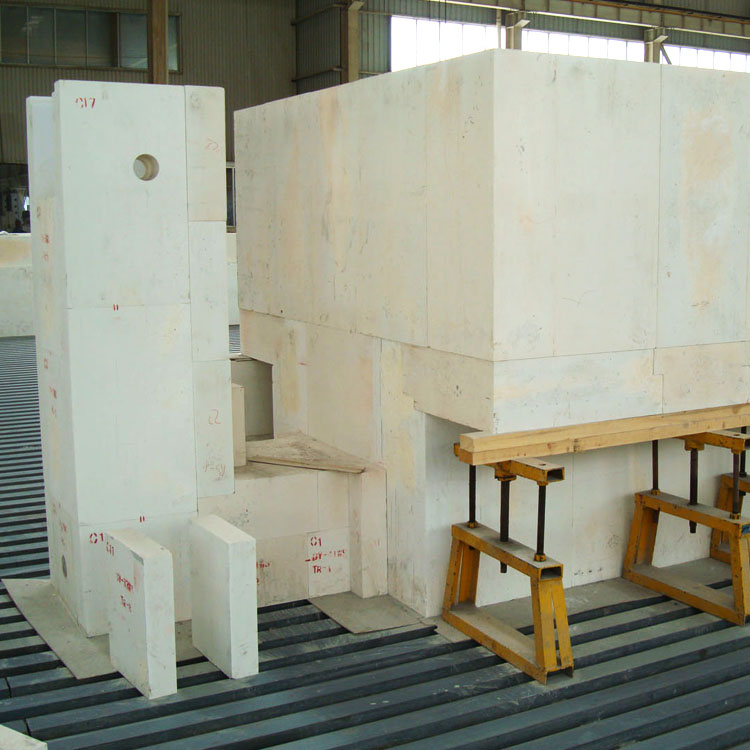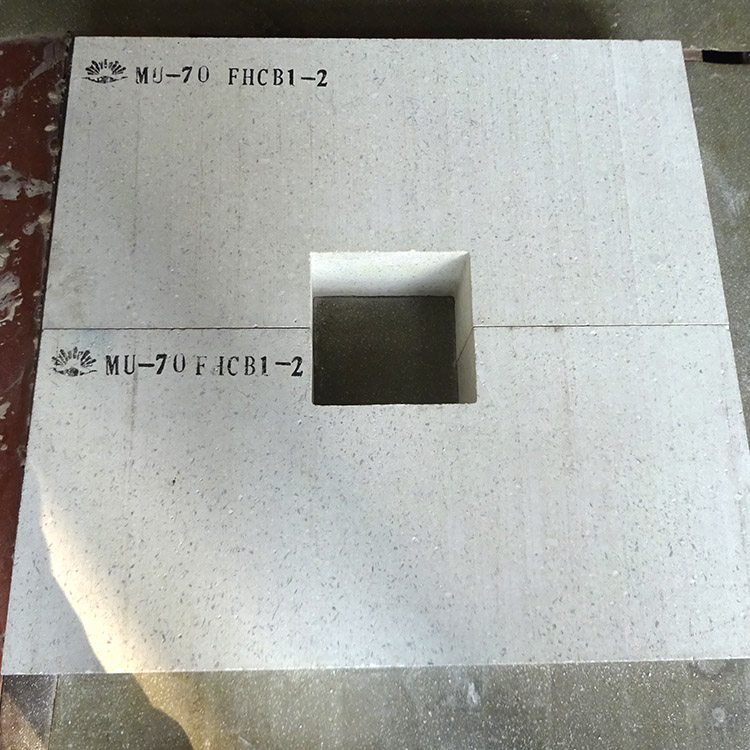
Large fused-cast sillimanite bricks leverage a cutting-edge casting process that addresses the persistent challenge in manufacturing complex-shaped refractories. The process begins with meticulous mixing of premium raw materials into a highly fluid slurry, ensuring homogeneity and optimal particle dispersion. This slurry is then carefully hand-poured into precision-engineered plaster molds, enabling the creation of intricate and customized shapes with excellent dimensional accuracy.
Following casting, the molded bricks undergo a controlled drying phase where moisture is gradually removed to prevent internal stresses. Subsequently, the bricks are subjected to a high-temperature firing cycle, reaching temperatures above 1700°C, which induces full vitrification and crystallization of mullite phases. This thermal treatment culminates in exceptional mechanical strength and superior corrosion resistance, crucial for high-demand industrial environments.

The hallmark of large fused-cast sillimanite bricks is their compatibility with a spectrum of non-standard geometries. Industries such as glass manufacturing, metallurgy, and petrochemicals routinely require refractory components with complex profiles tailored to specific furnace designs or equipment layouts. For instance, the bricks have been successfully used in:
This adaptability is critical in minimizing onsite modifications, reducing downtime, and ensuring prolonged service life without compromising the refractory integrity.
.jpg)
Traditional refractory products are generally formed by pressing or extrusion, methods that often struggle to accommodate intricate shapes or require complex tooling, increasing both manufacturing time and costs. Large fused-cast sillimanite bricks stand out in several key areas:
| Feature | Traditional Pressed/Extruded Bricks | Large Fused-Cast Sillimanite Bricks |
|---|---|---|
| Shape Complexity | Limited; difficult to produce complex geometries | Highly adaptable, supports intricate, irregular shapes |
| Mechanical Strength | Good but may degrade faster under thermal cycling | Superior strength due to mullite crystallization |
| Thermal Shock Resistance | Moderate | Excellent, suited for high stress thermal conditions |
| Manufacturing Lead Time | Longer due to tooling changes for different shapes | Shorter with flexible mold usage and hand-casting |
Extensive testing has shown that large fused-cast sillimanite bricks achieve compressive strengths exceeding 100 MPa and thermal shock resistance that lasts for more than 100 cycles between 1400°C and room temperature without noticeable spalling. Corrosion resistance tests in harsh molten glass and slag environments revealed an erosion rate less than 1.5 mm/year, outperforming many comparable refractory types by over 30%.

Customers frequently face obstacles such as:
Large fused-cast sillimanite bricks effectively eliminate these drawbacks by allowing flexible mold-based casting of complex profiles, delivering robust, pre-finished shapes that integrate seamlessly into existing infrastructure. This reduces onsite labor, enhances durability, and accelerates turnaround times, directly contributing to operational efficiency and cost savings.
A leading global glass manufacturer adopted large fused-cast sillimanite bricks for their melting furnace regenerator walls, which required multiple curved and trapezoidal shapes. Post-installation verification showed a 25% increase in service life combined with a 15% improvement in thermal efficiency due to the bricks’ enhanced insulation and stability. Maintenance interventions reduced drastically, proving the solution's viability and long-term value.
Discover how large fused-cast sillimanite bricks can redefine your refractory production challenges and upgrade your operational reliability.


